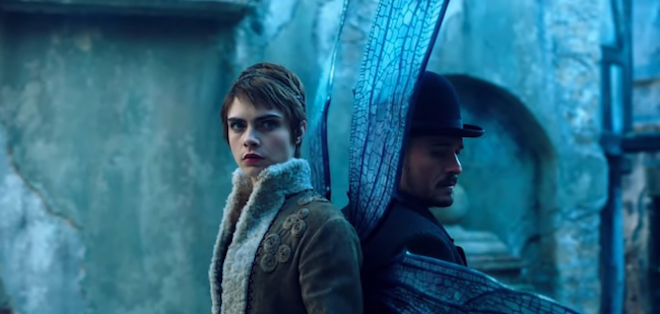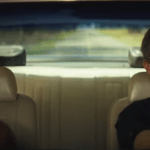Carnival Row: Beautiful, Meaningful, Timely
Amazon Studio’s new show Carnival Row is beautiful, meaningful, and timely in the face of various refugee crisis situations around the world. Unfortunately, they may be preaching to the choir.
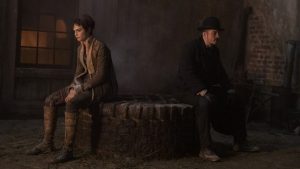 According to creator Travis Beachum, the script for Carnival Row was started about 17 years ago. Despite the length of time that’s passed, the themes are still incredibly relevant and you can’t escape the parallels to how we treat refugees right now in 2019. It’s so on the nose, in fact, that the mayor of San Diego did a quick u-turn at the Amazon Prime off site event at San Diego Comic-Con once that theme became clear. The parallels and moral lessons about how we treat marginalized groups in society is not at all subtle.
According to creator Travis Beachum, the script for Carnival Row was started about 17 years ago. Despite the length of time that’s passed, the themes are still incredibly relevant and you can’t escape the parallels to how we treat refugees right now in 2019. It’s so on the nose, in fact, that the mayor of San Diego did a quick u-turn at the Amazon Prime off site event at San Diego Comic-Con once that theme became clear. The parallels and moral lessons about how we treat marginalized groups in society is not at all subtle.
The plot revolves around the Fae folk, who are forced to flee their land due to ongoing war – which is strongly implied to be the human’s fault in the first place. In our world, the Fae are treated as the lowest class members of society, generally confined to to a serving class (with one notable exception), and allowed no voting rights. They are scoffed at, called slurs, and mistreated by law enforcement, who seem more interested in treating the Fae like crap instead of actually upholding the law.
It’s all very dark, but not exactly unfamiliar. The parallels are so obvious, in fact, that I don’t think anyone that needs to actually hear it will make it past the first episode. Like the mayor of San Diego, they’ll turn around and flee.
For those of us who are actually open to listening to moral lessons about how we should treat other cultures with respect, we are treated to an incredibly visually beautiful (barring a few shaky special effects moments) and emotionally driven story that will stick with you for a long time to come.
Of particular note is Cara Delevingne, whose portrayal of Vignette Stonemoss stood out as one of best performances in the entire show. She stood toe to toe with actors who have been working far longer than her, like Orlando Bloom and Jared Harris. She may not have been on my radar before, but she certainly is now.
The rest of the review contain spoilers for Carnival Row.
The core of the story quite pointedly revolves around racism and the acceptance of refugees and it comes at it from many directions. When Philo is revealed to be half Fae himself, they touch upon what it’s like to be biracial and caught between two worlds. As I’m not biracial myself I can’t exactly vouch for the accuracy or the sensitivity of that portrayal, but it was an angle on the issue I hadn’t expected in the show and I was pleasantly surprised that they’d even attempt to tackle the topic. I would be interested in reading a perspective from someone who can speak with authority on this theme, however, so if you find one please send it my way! And likewise, I’d love to know if someone who has lived experience with being biracial actually consulted on the story.
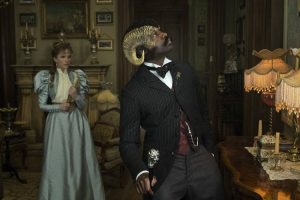 The show also touches upon what it’s like for those from these marginalized groups who manage to work their way into the upper echelons of society. Agreus Astrayon walks a fine line when it comes to being accepted by the upper class in the Burgue.
The show also touches upon what it’s like for those from these marginalized groups who manage to work their way into the upper echelons of society. Agreus Astrayon walks a fine line when it comes to being accepted by the upper class in the Burgue.
At some points he comes off as rather unsympathetic – more willing to side with the humans at the expense of his fellow Pucks and other Fae. He gained his wealth by ingratiating himself with humans and tracking down Fae that fled from their work contracts, which makes it hard to entirely sympathize with him. Even when I started to like his plot more later, that part stuck with me.
Still, despite his moral ambiguity, I enjoyed his relationship with Imogen. They temper each other’s negative traits to some degree. They don’t have to pretend around each other and, on some level, start to care less and less about being accepted by society at large. It almost becomes a joke to them. Just how much can they uproot the Fae-phobic society by merely being in each other’s company? For that I immensely enjoyed their story, despite Agreus’ sketchy ways of climbing to the top of the ladder.
My only complaint is that their story line, while interesting, felt like it took away from the central plot with Vignette and Philo. I enjoyed Imogen and Argeus’ story, but bouncing back and forth between these two parallel stories felt almost distracting. It almost felt like two entirely unconnected stories that just happened to be in the same universe. Except for the brief moment when Vignette worked in the Spurnrose household and the fact that the elder Spurnrose family let Philo’s mother give birth to him there, it’s very unrelated.
Seeing them sail away from the Burgue at the end made me happy that at least somebody gets to get out of that hell hole and have a shot at a happy life. Good for them. So all in all, I enjoyed them and their strangely disconnected plot.
The Breakspear family drama also felt like a tangent, but unlike the Agreus and Imogen story, I didn’t find the Breakspear family all that interesting. The only aspect of the entire Breakspear story that was interesting came in the last two episode with Jared Harris’ character – Absalom Breakspear. I’m grateful they didn’t waste Jared Harris on a completely boring side plot because after his role in Chernobyl I’m extremely interested in his work as an actor. Harris’ career began before I was even born, so it’s not like I haven’t been exposed to him at all, but Chernobyl made me take notice of his style and I was excited to see him in this.
Still, the Breakspear family drama was horribly grating and boring and I could have done without about 90% of it. Even though their drama is what sparked the murder plot, their screen time dragged. But this is the only part I didn’t enjoy, though, so that’s a fairly good ratio for a show that has this much going on.
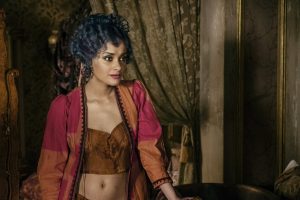 While some of these side plots felt like they took away from the core story, there was one bit I was glad was included. When I was going into the show my one hope was that there would be some queer themes, despite them not being used as a selling point of the show. Thankfully my wish came true. And it came true with gloriously beautiful queer fairy women. Thank you, Carnival Row. Thank you.
While some of these side plots felt like they took away from the core story, there was one bit I was glad was included. When I was going into the show my one hope was that there would be some queer themes, despite them not being used as a selling point of the show. Thankfully my wish came true. And it came true with gloriously beautiful queer fairy women. Thank you, Carnival Row. Thank you.
Vignette and her best friend Tourmaline Larou had a previous romantic relationship, which then morphed into a platonic friendship along the way. This isn’t a take that gets portrayed a lot, whether it’s same sex or opposite sex. Seeing their love portrayed as swung from sexual to platonic – but equally valid either way – was refreshing.
And the best BEST part? Actress Cara Delevingne is queer herself. This means a queer actress is portraying a queer character, which is something that often gets lost when it comes to representation.
Later we are also introduced to a doctor who had been keeping his homosexuality a secret for many years. His side plot highlighted the fact that this society isn’t just discriminatory towards the Fae refugees, but for even their fellow humans who don’t fit into rigid societal standards. The writers of the show already had their hands full with refugee and racism themes, but they still managed to include LGBTQ+ themes as well. For that I’m thankful.
Was Carnival Row perfect? No. But it was beautiful, meaningful, and incredibly timely. The narrative troubles aren’t exactly unusual when it comes to complex fantasy dramas, so I’m more than willing to forgive attempting to cram too many parallel plots into a single story if it means we get something gorgeous and deep as a result. It’s worth 8 hours of your time. Trust me.
Author: Angel Wilson
Angel is the admin of The Geekiary and a geek culture commentator. They earned a BA in Film & Digital Media from UC Santa Cruz. They have contributed to various podcasts and webcasts including An Englishman in San Diego, Free to Be Radio, and Genre TV for All. They identify as queer.
Help support independent journalism. Subscribe to our Patreon.
Copyright © The Geekiary
Do not copy our content in whole to other websites. If you are reading this anywhere besides TheGeekiary.com, it has been stolen.Read our

